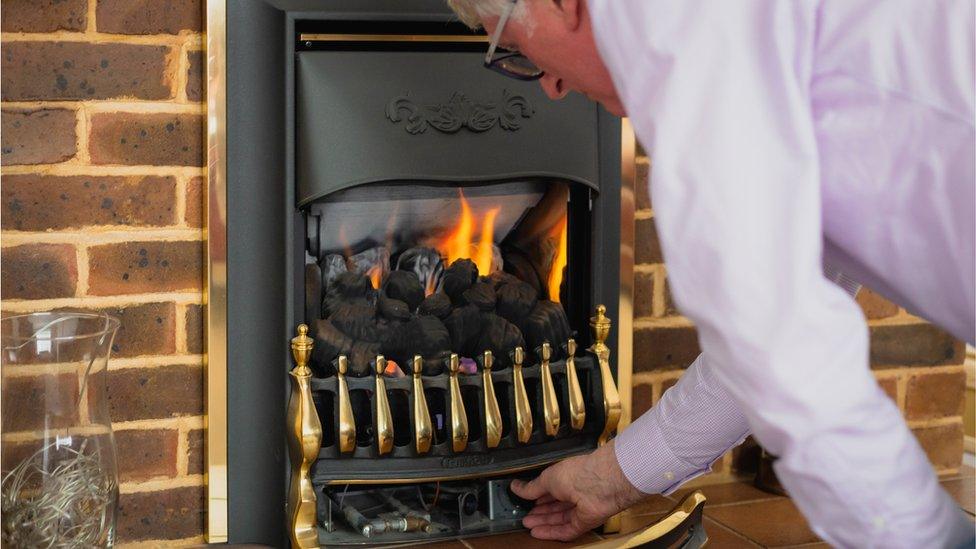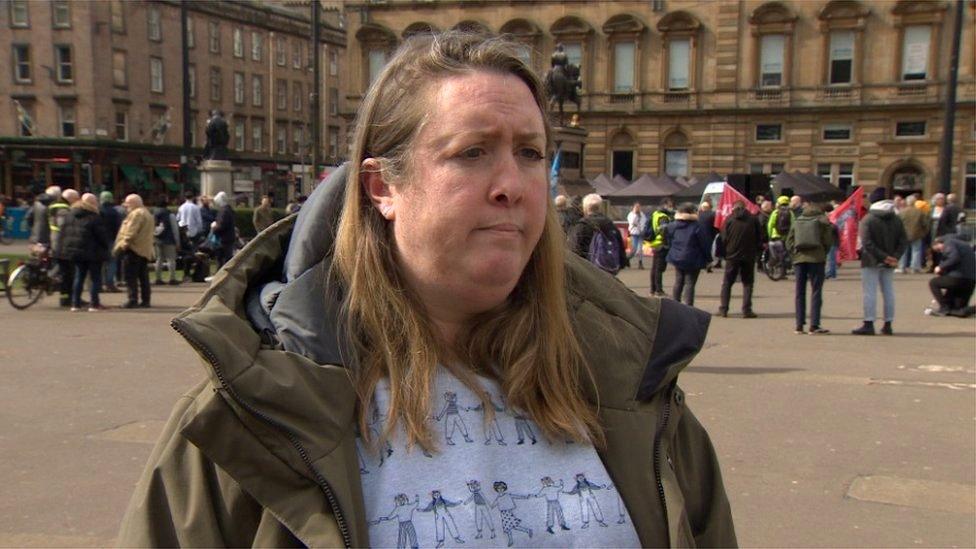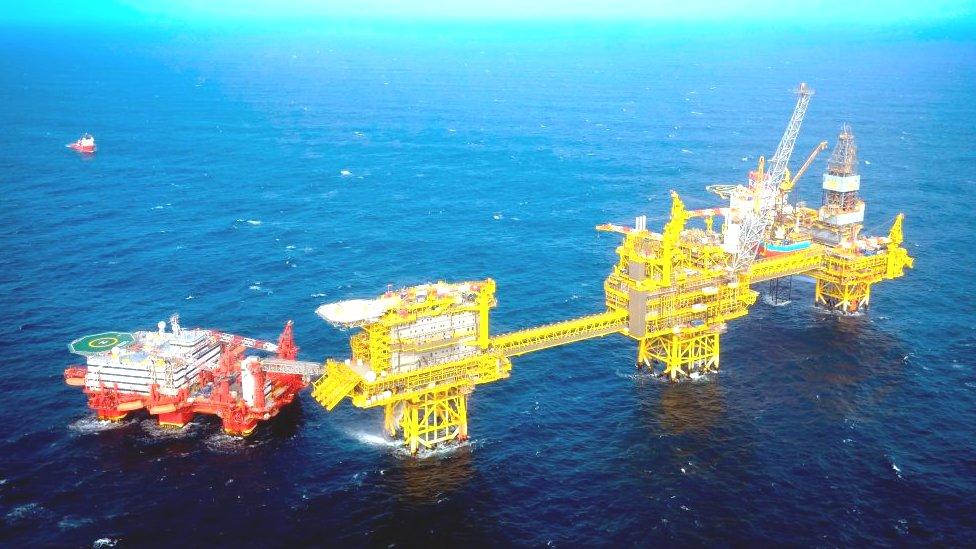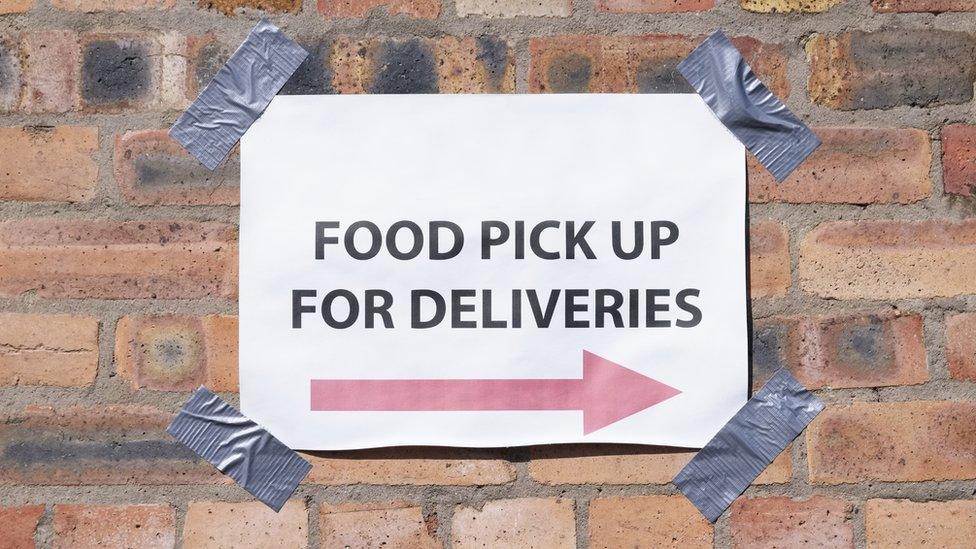Average wage Scots facing fuel poverty, says energy boss
- Published

Energy bill are set to go up again in October when colder weather sets in
Scottish households with average incomes are facing fuel poverty this winter, an energy boss has warned.
Scottish Power chief executive, Keith Anderson, said families would find it "extremely difficult" as fuel prices are set to rise again.
Mr Anderson, told the BBC it would be a "horrific" winter without government intervention.
He called for 10million UK households to have their energy bills reduced by £1,000 this October.
Mr Anderson said: "The average wage in Scotland is somewhere between £31,000 and £32,000. If the energy price goes to £2,900, that means every person on an average salary will be defined as being in fuel poverty."
He added: "That is a horrific statistic and that shows you this isn't an issue that is just affecting poor people, it's not an issue just affecting people on benefits.
"This issue will hurt and be extremely difficult for people on an average salary."
If the fuel price cap is increased again in October it is feared that many customers unable to pay their bills - which also means huge losses for suppliers.

Scottish Power CEO Keith Anderson said his biggest concern was people on pre-pay meters
Mr Anderson said the UK government's plan to give each household £200 towards their energy bill - a sum that will need to be paid back - would not be enough.
He added: "We need to be realistic about the gravity of the situation - around 40% of UK households, potentially 10 million homes, could be in fuel poverty this winter."
The increase in fuel bills last month was a result of the UK energy price cap being lifted, which is the maximum price suppliers can charge.
This led to an average increase of £693 for about 18million homes on standard tariffs - and £708 for 4.5million prepayment customers.
Tariff reduction
Energy companies have seen the wholesale prices they pay affected by the war in Ukraine and ongoing pressure on suppliers.
However, Mr Anderson said a £10bn tariff-reduction fund could be paid for by adding £40 a year to all household energy bills for the next decade.
He said such a fund would tackle the biggest cause of the cost-of-living crisis in a way that other measures - such as the recent 5p cut to fuel duty or a possible cut to the frequency of MOT testing - do not.
Households on pre-payment meters and those in receipt of benefits would also be eligible for the discount.

What is fuel poverty?
In Scotland, a person is considered to be living in fuel poverty if the cost of heating their home is more than 10% of their household income, after tax and housing costs have been deducted.
This applies if their remaining income is insufficient to maintain an acceptable standard of living, defined as being at least 90% of the UK Minimum Income Standard, a set of criteria drawn up by the Centre for Research in Social Policy at Loughborough University.
It calculates the income required for a minimum standard of living, external based on essentials such as food, clothes and accommodation, as well as "other costs required to take part in society".
The Scottish government has committed to reduce fuel poverty to no more than 5% of households, external by 2040.

Mr Anderson said the scheme had to be decided on now and in place by October, adding that people on pre-payment meters were his "biggest concern".
"When you get to October, the weather starts to get colder, the usage will increase dramatically," he said.
Any intervention needed to be decided on by July, he added.
Mr Anderson also said more energy companies could collapse if their customers were unable to pay their bills.
Scottish Power is owned by Spanish firm Iberdrola. Mr Anderson fears that foreign owned energy suppliers - including EDF and Eon - might struggle to persuade their parent companies to continue to subsidise loss-making UK subsidiaries.
Chancellor Rishi Sunak said people would have to wait until the autumn for any further help with their energy bills.
Related topics
- Published11 April 2022

- Published2 April 2022

- Published29 March 2022

- Published5 February 2022
